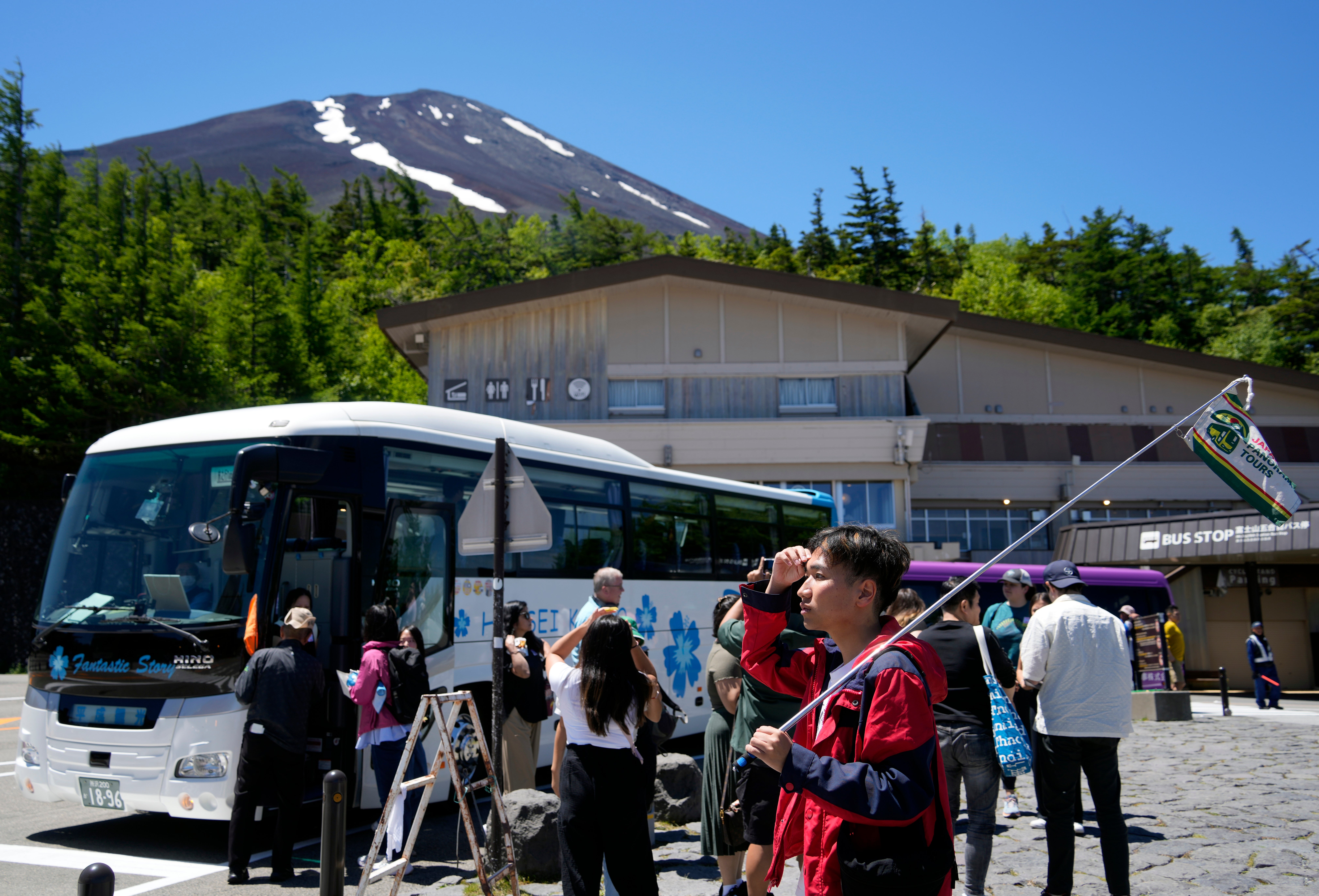Four people die on Japan’s Mount Fuji just days ahead of climbing season
Authorities have warned people against scaling mountain before climbing season begins next month
At least four people have been found dead on Japan's Mount Fuji, prompting a warning against scaling the mountain before the climbing season.
Three people were found in a state of cardiac arrest inside a crater on the summit of the mountain while a fourth died after collapsing on the north side.
One of the bodies from the crater has been brought down, police said on Thursday. Attempts to bring back the other bodies will continue on Friday or later, depending on weather conditions.
The bodies were found after police responded to a call on Sunday morning from a Tokyo resident who lost contact with her 53-year-old husband after he went to climb the mountain.
Law enforcement officials searching for the man found three people in a state of cardiac arrest near the south side of the peak, NHK World reported. They are believed to have climbed from the side of Shizuoka Prefecture.
Professional climber Keita Kurakami, 38, died in hospital after being found by police on the Yamanashi Prefecture side of the mountain.

The three trails to the summit from Shizuoka and one from Yamanashi are scheduled to open in July, when it is safe to climb the 12,388ft mountain. But people have already started going up, disregarding warnings from the Japanese authorities.
Experts warn that it can get extremely cold, even in the summer, and proper gear, climbing boots and clothing are crucial. Trekkers are also at risk of altitude sickness if they ascend too quickly.
"Mount Fuji in winter is classified as one of the toughest mountains for winter climbing in Japan," Takekawa Shunji, a mountain guide, told the Japanese broadcaster.
"Conditions are so severe that people with just some experience with ordinary mountains in winter can't deal with it. It still has some snow in June, so a climber must know that conditions won't be different to those of winter."
The picturesque Fuji has long been a famous symbol of Japan, with its gracefully sweeping slopes and white icy cap standing out above tranquil lakes and rice fields.
As many as 300,000 people climb it every year, and watching the sunrise from the mountaintop is coveted as a spiritual experience. But worries have been growing lately about overcrowding by tourists.
In March, Japan announced entry fees of ¥2,000 (£10) per head for people climbing the volcano to tackle overcrowding. A gate is set to be installed at the entrance to the Yoshida Trail, also called the fifth station, on the Yamanashi side of Fuji, standing at 3,776m.
For the 2024 season, which runs up until mid-September, the newly installed gate will operate for limited hours, closing at 4pm and reopening at 3am the next day.
The town of Fujikawaguchiko in Yamanashi recently erected a large black screen along a pavement to block the view of Mount Fuji to discourage photo-taking crowds.
Join our commenting forum
Join thought-provoking conversations, follow other Independent readers and see their replies
Comments
Bookmark popover
Removed from bookmarks